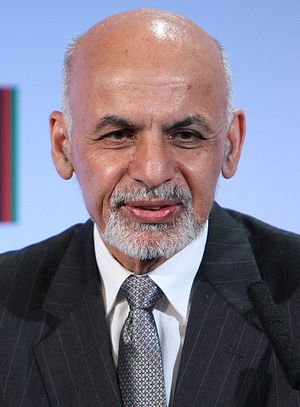Afghanistan initiated the ‘Kabul Process’ this week, an Afghan-led, Afghan-owned inclusive peace process. This is in contrast to the other peace processes like the Russia-China-Pakistan trilateral that had even excluded Afghanistan when discussing the future of a presumably terrorism-free and militancy-free Afghanistan. President Ashraf Ghani of Afghanistan said that the government now wants to create the conditions to talk directly to the Taliban, but it would not be an “open-ended opportunity.”
He said that he wants meaningful negotiations to end the conflict as preconditions. He cited the Afghan government’s success in making peace with the Gulbuddin Hekmatyar’s Hezb-i Islami, the first major reconciliation in 40 years of conflict.
The conference was also attended by representatives of three international entities, the European Union, NATO, and the United States.
The Afghan government stressed that the process isn’t an all-encompassing solution, but a process of working towards a solution. At the summit, Ghani mentioned that there have been 75,000 Afghan casualties in 2015 and 2016 alone. He said that 11,000 terrorists had come to Afghanistan in the last 2 years, as the Taliban have created a conducive situation for terrorists from all over the region to come to Afghanistan. The same could be said of the Taliban in the past, who sheltered Al Qaeda in the lead-up to the 9/11 attacks.
Ghani called on the international community to hit at the roots of the Taliban: its transnational financing. He said that in the early months of his presidency, he had offered an olive branch to Pakistan, but was snubbed. He added that “What will it take to convince Pakistan that a stable Afghanistan helps them and helps our region?”
Chief Executive Abdullah Abdullah started his address by expressing his condolences for the victims of the recent London terror attack. He thanked countries and multilateral organizations that have since 2002 assisted in rebuilding Afghanistan. He alluded to the Taliban’s headquarters in Pakistan, adding that the group misuses Islam. As the meeting was ongoing, a bombing hit the Jama Mosque in Herat and a rocket was also fired at the Indian ambassador’s house in Kabul, but no one was harmed.
On a phone call with U.S. National Security Adviser H.R. McMaster after the Kabul bombing on Friday, which killed more than 100 and left more than 350 wounded, Afghanistan’s national security adviser requested that Afghanistan and the U.S. must soon start high-level talks and consultations within the framework of the Bilateral Security Agreement. With reference to drone strikes on terrorists in the region, he added that mechanisms for for combating and eliminating safe havens of terrorists outside Afghanistan must remain in place.
At the same time, U.S. Secretary of Defense James Mattis appeared to break with previous U.S. administrations who had noted that there is “no military solution” to the conflict in Afghanistan. Specifically, he said:
As far as Afghanistan goes, as Secretary Tillerson said, the policy is under review, but at the same time we’re up against an enemy that knows that they cannot win at the ballot box, and you think – we have to sometimes remind ourselves of that reality. That’s why they use bombs, because ballots would ensure they never had a role to play, and based upon that foundation, that they cannot win the support, the affection, the respect of the Afghan people. We will stand by them. They’ve had a long, hard fight, and Australia has been in this one from the very beginning, and the fight goes on. But the bottom line is we’re not going to surrender civilization to people who cannot win at the ballot box.
Finally, in a cryptic tweet, Sediq Sediqqi, the director of Afghanistan’s Government Media and Information Center (Government Press Information Bureau) said, “Imagine if we and some other countries would have done the same to Pakistan as Egypt, UAE, Saudi and Bahrain did to Qatar!” In fact, Pakistan’s biggest ally, China, reportedly contemplated sealing its border with Pakistan to stop the inflow of militants. Given these circumstances, would we see the war being taken to the Taliban/Islamic State-Khorasan Province on the ground and forced to the talks table? Sediqqi’s question raises the possibility of Pakistan potentially facing the Qatar treatment in the region.
Aveek Sen is an independent journalist working on cyber security and the geopolitics of India’s neighbourhood, focusing on Pakistan, Afghanistan, Iran and Bangladesh. He tweets at @aveeksen.

































